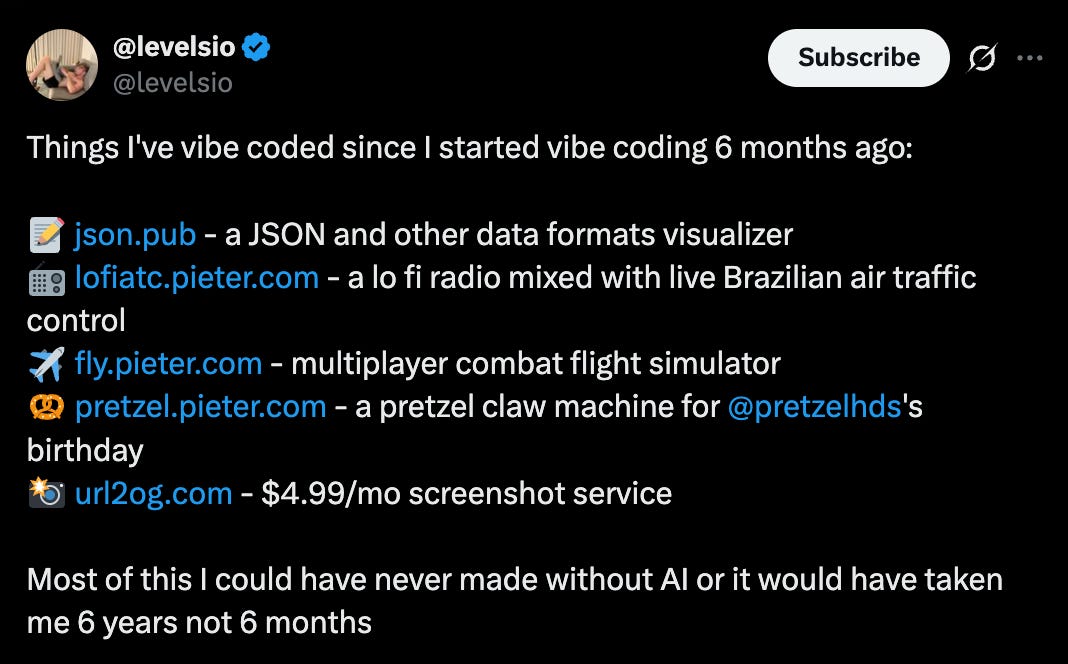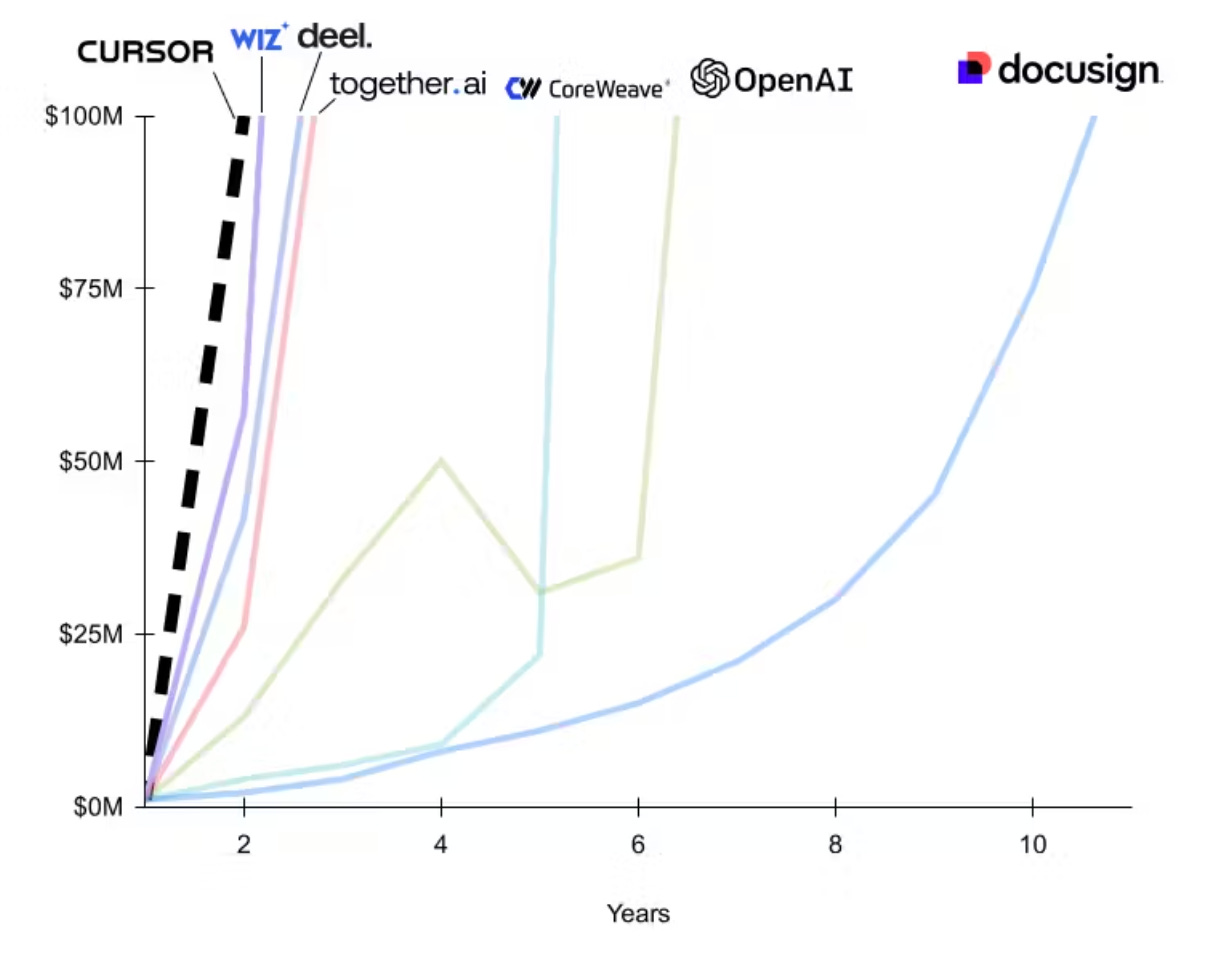Bet on Substance
Choosing Authenticity in the Age of Slop
Copy-Paste
In my high school history class I remember watching another group give a presentation on the Industrial Revolution. They weren’t considered the most studious bunch, but their confidence was palpable. The speaker's voice was strong, but robotic. The delivery was articulate and crisp, but soulless. I hadn't studied the topic too closely yet, but I could recognize the voice and it wasn't theirs.
After a minute I pulled out my phone, opened Wikipedia, and watched their “original” analysis scroll down my screen in perfect sync with the speaker.
In that moment, their overt plagiarism was entertaining. They took full advantage of a new technology. No research, no real thought, only a copy-pasta presentation. When I looked at the teacher, he was unamused and disappointed. Clearly sensing the rote regurgitation in the shallow speech.
The early web, for all its benefits, made it easy to churn out shallow imitation content. Slop.
Slop
Slop isn’t new. In the last era of the internet, SEO warped the creative landscape, and turned online writing into a disease of keyword stuffing. The goal wasn’t to inform or engage readers—it was to game algorithms and quality plummeted.
AI poured gasoline on the fire.
Sure, the grammar’s cleaner and the tone's smoother. But you still know when you’re reading stock ChatGPT content. It has the shape of writing but none of the substance. It hits the word count, and misses the point. There’s no human fingerprint. No consideration for the reader. Just noise in a confident voice.
Substance Is a Choice
There's real frustration with the flood of AI slop online. After two years of breathless hype, the backlash has kicked in, and the turbulence is familiar. Every breakthrough pulls us through a transitionary stage where novelty outruns usefulness. We're in it now. There are horseless carriages everywhere built on top of hype and speculation. Apps shoving “AI-powered” onto their landing pages or pitch-decks with the “ChatGPT for X”, all as a strategy to court funding that's clearly working. It's the frenetic race of the techno installation phase. Hype first, substance later.
But the same LLMs (Large Language Models) that churn out slop can help you build something beautiful. You can draft an outline, summon a metaphor, surface research, navigate latent space, and stay in flow. You can offload overhead and focus on the parts that matter. AI won't care about your argument. That part is still up to you. Effort is still a choice.
Used lazily, AI amplifies mediocrity. Used well, it accelerates creativity. That choice will define the next decade.
These tools surface the default. The expected. The statistical average. You can decide whether to stay on the main road or venture somewhere more interesting.
Austin Kleon captures it in Steal Like an Artist:
“Every new idea is just a mashup or a remix of one or more previous ideas.”
Real creators don’t settle for superficially ripping off others. They absorb their influences, transform them, and create something unexpected and unique that's completely them. AI can hand you style but you have to supply the heartbeat.
You still have to put in the work.
Slop will keep flooding the internet, but the tools that help you move faster, think laterally, and dive deeper are here too. You can use AI to cheat, or you can use it to amplify.
Fear of the New
“In a couple decades there won’t be many people who can write” — Paul Graham
Paul Graham warns that large language models could hollow out our capacity to think: outsource writing, and you outsource thinking. I understand the worry, but the rhetoric is familiar. Every major new technology brings the same dread and fear of cultural doom.
When calculators first entered classrooms, critics predicted the end of math. Yet students didn't lose the ability to think. Instead, students could off-load tedious arithmetic, which made it easier to grasp higher order concepts like algebra, calculus, and modeling.
The printing press met even fiercer resistance. Scribe guilds chased early printers out of town and burned their books. The clergy insisted that “printed books will never equal handwritten codices.” Pamphlets flooded Europe, but so did Erasmus and Martin Luther. Printers did flood society with shallow content, and they ignited the greatest surge of literacy and intellectual exploration in history.
When streaming services emerged, critics wailed about the death of cinema. But new platforms unleashed whole new genres. Documentary series and indie films found audiences they never could’ve reached before. We got an explosion of “straight-to-DVD” content and we got The Queen’s Gambit and Severance.
“Painting is dead!” — Paul Delaroche, on seeing the first daguerreotype
Today’s AI anxiety is the same old fear with a new wrapper. LLMs will pump out slop, no question. But the tool is neutral. Intent decides the output: used thoughtlessly, it mass-produces junk. Used thoughtfully, it amplifies creativity.
The question isn’t whether AI will ruin us.
It’s whether you aim the tool at something worth building.
Builders
Plenty already are.
A lot of builders are pushing forward with these tools. Prototyping products faster than ever, now that so much of the friction has been smoothed out.
Devon Zuegel spun up a DocSend clone in a single afternoon, letting Claude and Lovable handle the code while she focused on the vibes. Pete Koomen cranked out an email labeler with ChatGPT. Pieter Levels vibed an entire portfolio of apps. Everything from a JSON visualizer to a multiplayer flight simulator—building what would’ve taken six years in just six months.
The same toolset is also powering real craft:
The New England Journal of Medicine now runs GPT-4 against tricky case reports to surface non-obvious diagnoses that junior doctors miss. It’s a second brain, not a shortcut. Cursor, an AI code editor, pair-programs alongside developers. The founders shipped a proof-of-concept in days, then poured in months of polish.
The same acceleration that let Pieter Levels crank out a flight simulator also lets Cursor’s team obsess over craftsmanship. Speed is the standard, substance is the differentiator.
Good Will Hunting
One of my favorite scenes in Good Will Hunting involves a smug Harvard student trying to impress a girl by parroting textbook quotes. Will cuts through the noise immediately:
“You dropped a hundred and fifty grand on an education you coulda got for a dollar fifty in late charges at the public library.”
It’s a great moment. The line hits hard because it exposes the hollowness of recited knowledge. Will’s point isn’t anti-intellectual, it’s anti-bullshit. A rejection of performance that masquerades as original thought.
That’s LLM slop. Content with the shape of knowledge but no muscle underneath. Intellect without authenticity. Empty calories.
People can tell. They can sniff out performance. But we crave substance. Authenticity. Effort.
Choose Substance
I still think about those classmates reciting Wikipedia word for word. The early internet made it easy to be shallow and to reach millions.
Coast or create. The tool won't decide—you will.
Bet on substance.



